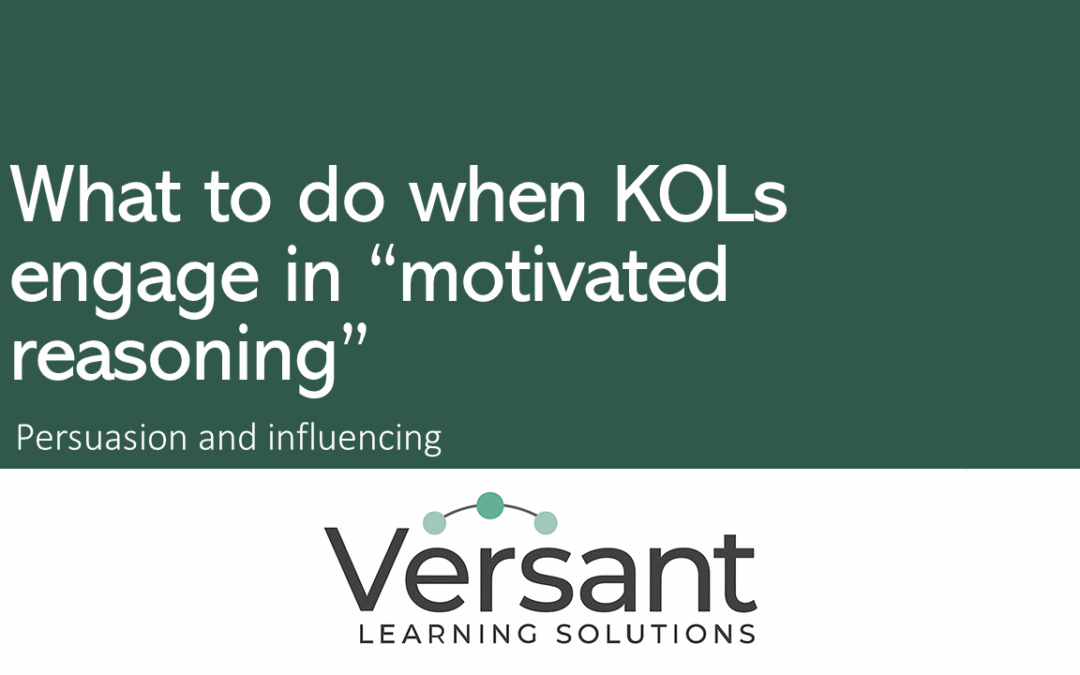Quick-Start Synopsis
Every MSL has a story (or several) of a KOL who, despite being repeatedly presented with new data, remained convinced that their outdated opinion was correct. How could the KOL maintain their viewpoint even when presented with robust, peer-reviewed, current information?
In fact, the KOL is not alone. We all engage in this type of behavior – called motivated reasoning – where we selectively filter out information that does not fit with our worldview and incorporate information that does. Our political and cultural identity can lead us to reach the conclusions we want to reach. Depressingly, not only do we reach comfortable conclusions when trying to parse complicated, data-heavy issues, we reach comfortable conclusions REGARDLESS of the evidence our own eyes have seen.
So how do we counteract this tendency to change someone’s mind or at least convince them to listen more objectively? Are your curious to know? Then you’re already heading down the right track!
Scientific Literacy and Polarization
You might be surprised to know that knowledge and expertise are no protection against “motivated reasoning.” In fact, more education, in the wrong context, may worsen the situation.
Scientific literacy – someone’s ability to understand dense, data-rich information (think climate change, the COVID-19 vaccine, frakking) – may result in well-educated people becoming more entrenched in their beliefs. Studies have found that Republicans and Democrats with high levels of scientific literacy are farther apart on issues like climate change than those with less scientific education.
The bottom line: the more scientifically literate someone is, the stronger their opinions – hence the more strongly they disagree with anyone whose opinion is different.
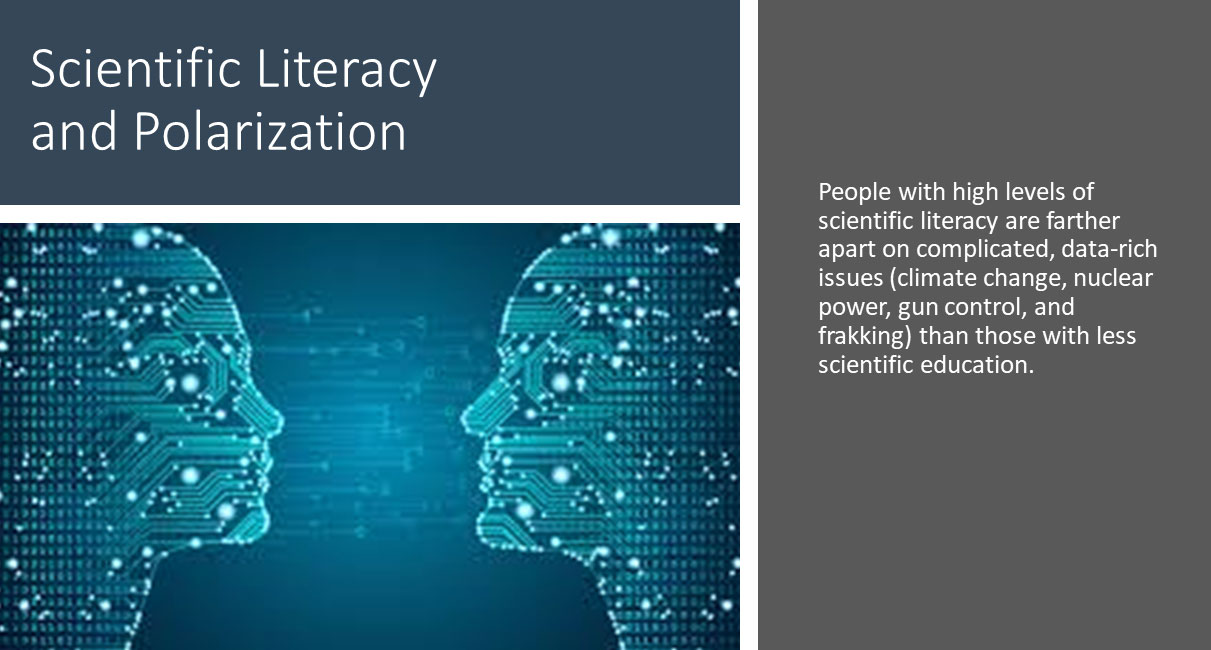
The Antidote: Scientific Curiosity
Scientific curiosity is very different from scientific literacy. You can have little training but be very curious and likewise you can have a lot of education, but not be curious to learn more.
The more curious someone is, the more they tend to converge on an “evidence-based view” of a topic. Isn’t that what the MSL is expecting every time they present new data or information to a KOL? Research suggests that if the MSL engages the KOL’s curiosity before presenting new information, the less likely the KOL will be to engage in motivated reasoning.
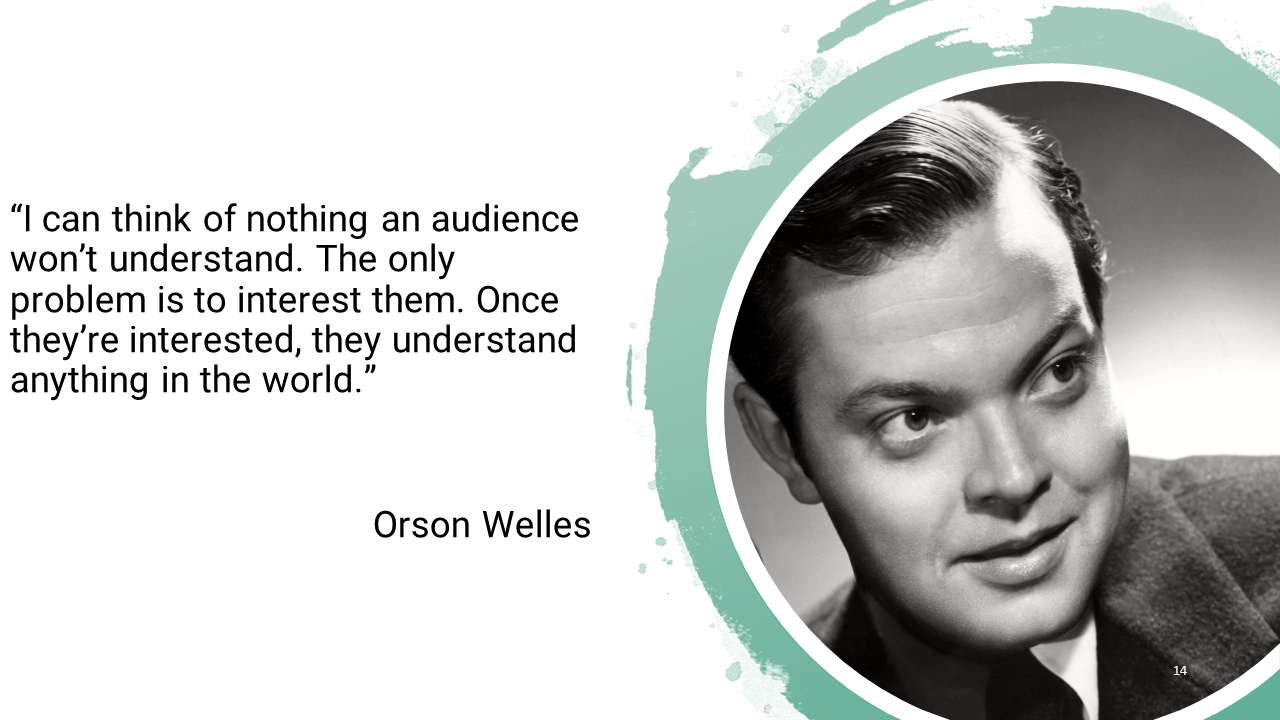
The Information Gap Theory of Curiosity
Can curiosity be cultivated? Can we inspire it in others? The good news is the answer is yes.
One thing that provokes curiosity is the awareness that there is a “gap” in our knowledge. George Lowenstein, a behavioral economist, named this the “information gap theory of curiosity.” It posits that, awareness of a gap in knowledge is enough to generate the curiosity needed to learn more.
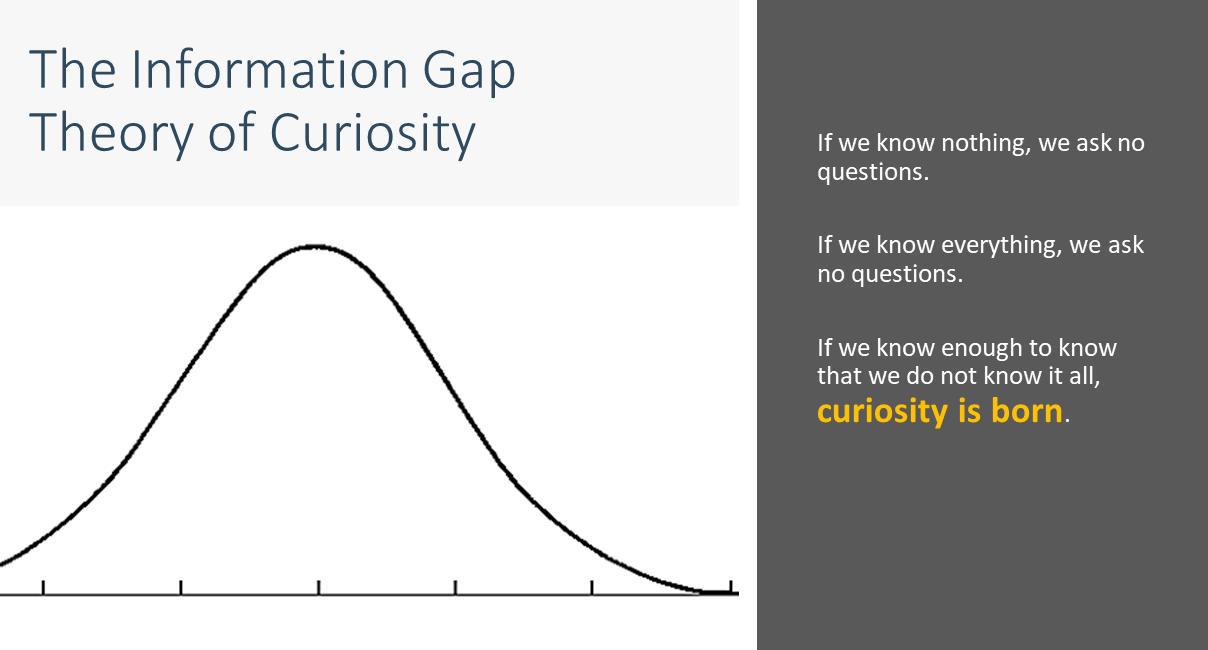
The Information Gap Theory of Curiosity
In one experiment utilizing this theory, researchers asked subjects to look at a list of everyday objects such as a lit candle, a toilet, and a bicycle and rate their understanding of each object on a scale of 1 to 7, with 7 being the person’s confidence that they understood the object very well.
Then, the plot twist: the researchers would ask the subject to elaborate. “Here’s a pen and paper. Please write out your explanation of a bicycle as thoroughly as you can. Please feel free to include diagrams.”
It turned out the task wasn’t as easy as people had assumed it would be. Subjects had more difficulty than they’d expected. They’d assumed that details of these mundane objects would readily spring to mind when needed. But they did not.
To their credit, most subjects admitted that they did not understand an object as well as they’d thought they did. When asked to reconsider their 1 to 7 rating, they dropped their scores, acknowledging that their knowledge had been shallower than they’d realized.
This is called the “illusion of explanatory depth” And it’s a curiosity killer – why go deeper if we understand everything?
The good news is that, as this experiment demonstrated, it is easier than one would assume to get people to reverse their position about understanding something well. It just required getting them to reflect on the gaps in their knowledge.
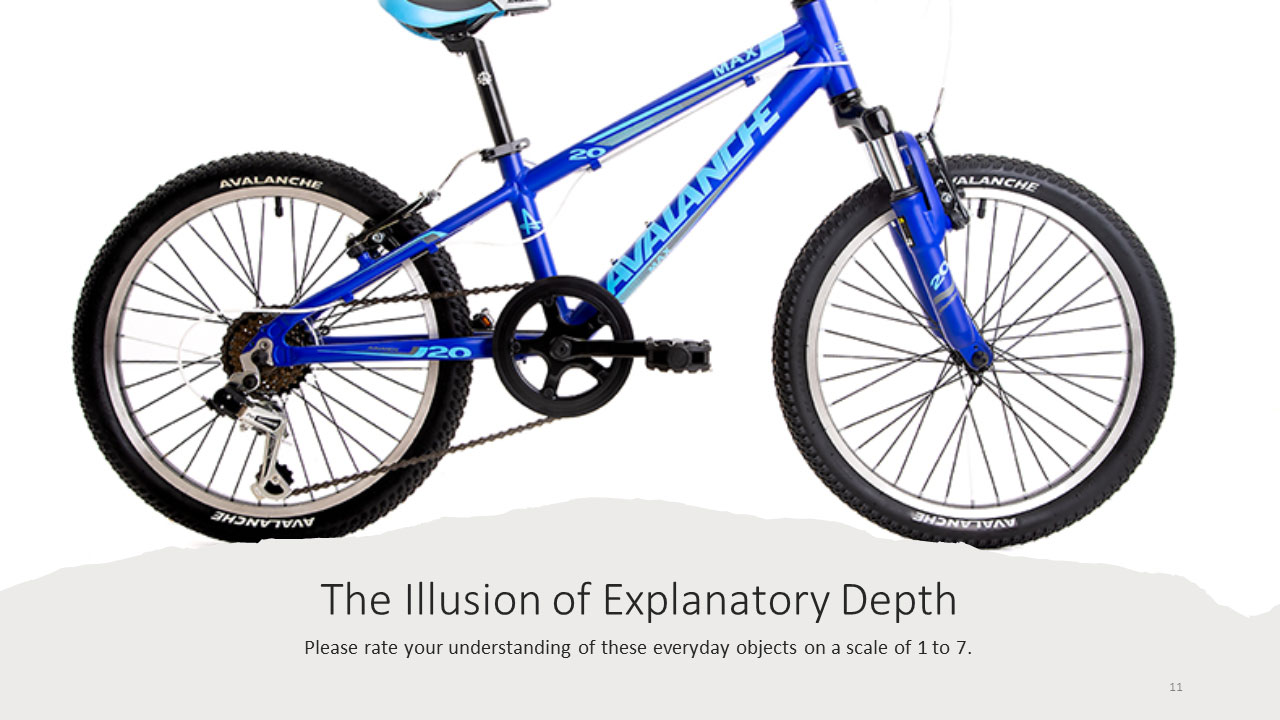
Proven Value for Medical Affairs
One of the most critical functions of Medical Affairs is to provide scientific education, both internally and externally. The more effective the employee, the more value they provide to the organization. The more strategies the educator has, the more effective the presentation. As you’ve just learned, engaging curiosity can be a game-changer when presenting new information, especially if that information is counter to an audience’s viewpoint.
Scenarios where engaging curiosity is key:
- During a field meeting, rather than asking a KOL why they believe or support a particular piece of data (doing that may cause them to dig in), ask them instead to tell you more about the data.
- When creating a new therapeutic slide deck – design it as a “data story” with surprises, mysteries, and questions to engage the audience’s curiosity.
- When presenting at an ad board or sales training – the audience is already looking for evidence of bias, so disarm them early by asking questions upfront to help them realize they may have gaps in their knowledge (aka the Information Gap Theory of Curiosity).
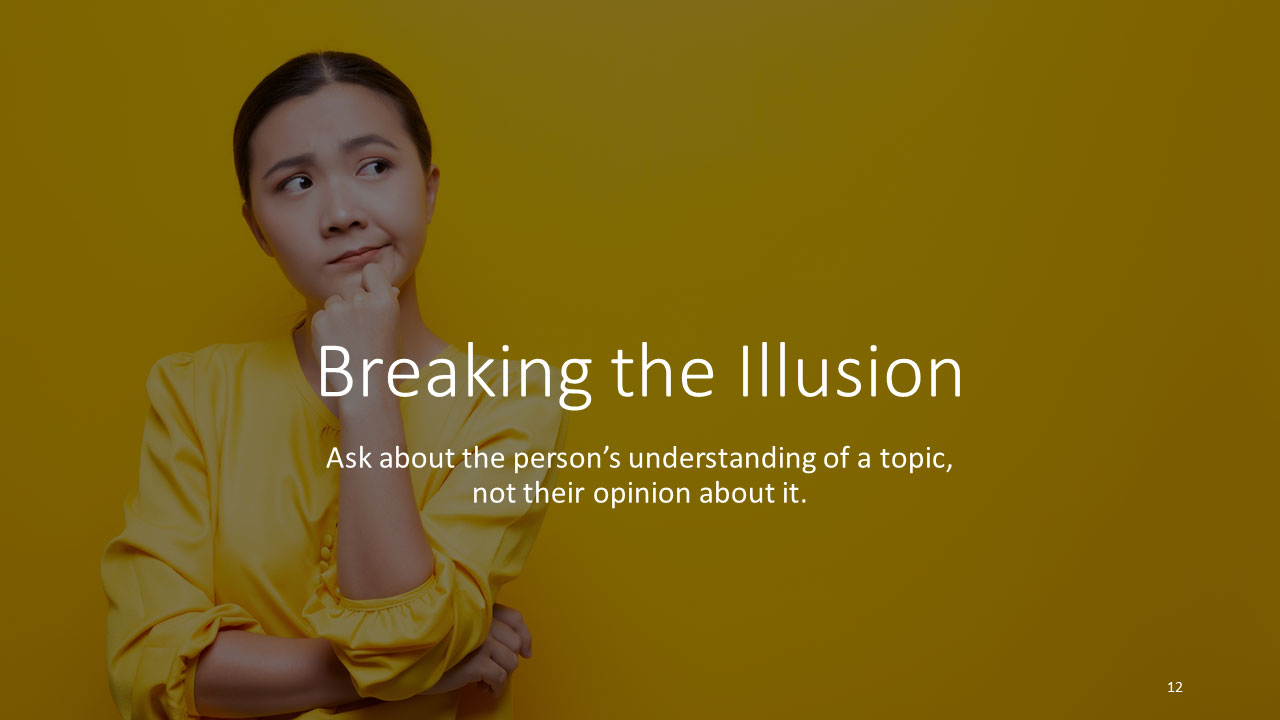
Contact Us to Develop Your Strategy
If you would like to discuss your team’s current or future training needs, please contact us.
References
Harford, Tim. The Data Detective. Riverhead Books, February 2, 2021.
Kuhn, D. (2002). “What is scientific thinking, and how does it develop?” in Blackwell Handbook of Childhood Cognitive Development, ed. U. Goswami (Oxford: Blackwell Publishing.), 371–393. doi: 10.1002/9780470996652.ch17.

